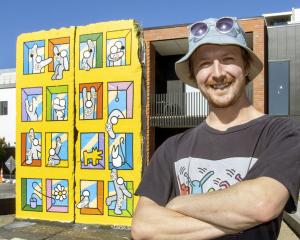Residents of Canterbury's Greenpark Huts who will be forced out of their homes are shocked Ngāi Tahu will build a facility at the site after they have gone.
The 32 bach owners were due to vacate their homes at the end of this month. But they have been given a one-year reprieve, with Ngāi Tahu extending the date to June 30, 2025.
In 2020, Ngāi Tahu told hut owners it would not renew their leases and said people would have until June 30 this year to leave and clear the site of any structures.
In its reasons for ending hut leases, Ngāi Tahu cited sea level rise, issues with wastewater removal and drinking water supply, and the cultural significance of the area.
Ngāi Tahu says it will help with some costs including project management fees, asbestos testing, capping of drinking water bores and the decommissioning of septic tanks.

Mahinga kai means 'garden' or 'food-gathering place'. It relates to traditional food gathering practices, as well as protecting ecosystems and habitats species are found in.
Almost all residents were unaware of the centre until they were told by Selwyn Times.
Resident Ross Wilson said the Ngāi Tahu plan was a double standard.
“It would be nice to find out a bit more about that, and we will in time, but it seems very strange if they’re going to put that on here when they’re talking about sea level rise,” Wilson said.
Resident Don Brown, who is Ngāi Tahu, found out about the plan in a meeting with the iwi on May 26, two days after the extension was given.
He had asked for a meeting to discuss his personal situation, and how the iwi could help him relocate to another home on the lake, not at Greenpark Huts.
“They offered me a home occupied by a former pakeha fisherman, but it was totally unsatisfactory.”
Brown said tikanga (custom) had not been carried out to remove tapu since a person had died at the home, and therefore he could not take it.
It was at that meeting he asked what the plans were for the Greenpark Huts land. He was told it would become a centre of excellence.
“When my son and I asked at a meeting with Ngāi Tahu when can we expect that? The answer was unknown. Is there a budget? No.”
Brown has a centuries-old connection to Te Waihora Lake Ellesmere, which started well before Ngāi Tahu arrived in Canterbury in about 1690.
Brown traces his whakapapa back to pre-Ngāi Tahu Ngati Māmoe and Waitaha, iwi which used the lake as a valuable food source 400-500 years ago.

He uses it as his connection to Te Waihora Lake Ellesmere and is regularly fishing the lake and engaging in mahinga kai.
“If you’re going to build a centre of excellence for mahinga kai, why not just leave Don Brown and his hut here.”
Te Taumutu Rūnanga chair Dr Liz Brown confirmed the plans for the centre, but did not respond to questions from Selwyn Times about what was going to be built, when and at what cost.
Liz Brown is Don Brown’s second cousin.
She also did not respond to questions about why the iwi was looking to establish a centre, given the reasons cited for the huts’ removal, which include climate change concerns.
Hut owners were sent a letter from Ngāi Tahu chief executive Ben Bateman about the year-long extension.
“We have heard from a number of leaseholders that more time is needed to ensure leaseholders are well-informed about their demolition options,” Bateman said in the letter.
He also said the time would allow people to get government support to find alternative housing. Ngāi Tahu would continue discussions with residents.
Brown said the extension was just dragging out the inevitable.
“It just gives people false hope.”
Wilson said the extension has given people “breathing space”.
“It was a huge relief to the ones who are still out there. But a lot of them are saying they (Ngāi Tahu) are just tormenting us with another year of pressure.”
Bach owner Kane Scarrott’s family has owned a hut since 1953. Scarrott also has a bach of his own. He said the extra year makes no difference.
“I’m not going anywhere, there is no grounds for them to make us leave,” Scarrott said.












